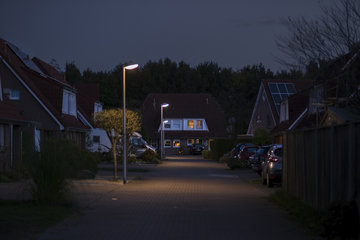"Keep the future open"
Interview with sociologist Akos Rona-Tas
People have been trying to predict the future since time immemorial: from dreams, from the stars or with the help of cards and dice. Thanks to large data bases and the possibilities of computer-supported analysis, the conditions for obtaining reliable forecasts seem better than ever before. However, Akos Rona-Tas advises against putting too much trust in these new methods of prediction. The sociology professor at the University of California San Diego, who was the Scholar in Residence at the Max Planck Institute for the Study of Societies during the 2018 summer semester, addresses the shadow side of modern-day divination.

Mr. Rona-Tas, is the craft or science of foretelling the future still making progress today?
It’s a paradox: on the one hand, we have access to an ever-increasing volume of data, and the tools available for analysing it are also improving. On the other, we see that predictions often turn out to be absolutely wrong. Nobody could have foreseen that the German national soccer team would be eliminated from the 2018 World Cup at such an early stage, for example. Or Donald Trump’s election as President of the US: the fact that opinion pollsters believed almost without exception and practically until the end of the campaign that a Trump election victory was impossible was a serious setback for the whole industry.
How do you explain this paradox?
Firstly, there are areas in which predictions function better, and areas in which they don’t work as well. The second category includes the outcome of soccer games. A random goal can make a game take a completely unexpected turn. That isn’t the case with all sports. In baseball, for example, it is much easier to quantify success factors. Soccer is also a team sport, more so than baseball. That makes it more complex. If a baseball team has an excellent catcher or pitcher, this alone makes its chances of victory much greater. Things would look quite different if a Messi or a Ronaldo was to join a national team that was not well coordinated. More generally: complexity is one of the critical factors that determines how accurate predictions can be. We can now actually forecast local events or sub-systems with increasing accuracy. However, these models fail when used on a global scale. We experienced this during the financial crisis. Individual segments of the financial system can be kept well under control. The effects of minor errors here are usually insignificant. However, instability arises at system level, in the interaction between the individual segments. It’s like allowing a car with very simple driving automation to continue straight ahead along an absolutely straight, level road. The car will still end up in the ditch at some point – because the road isn’t one hundred percent straight, or because the driving automation only work precisely within a certain error margin.
What other factors are involved?
In some areas, for example in the financial markets, forecasts can also turn into self-fulfilling prophecies. This effect distorts the results. I would actually prefer not to describe this effect as distortion. In general, I don’t see predictions as a measuring instrument, like a camera with which a picture of the future can be taken with a greater or lesser degree of distortion, but as a machine that can generate even social realities. Seen in this way, it is hardly surprising that the accuracy with which the future can be predicted is not increasing. As a sociologist, I am interested in precisely this interaction between prediction techniques and the social realities created by forecasting.
For example?
Nowadays, we see the future as a continuation of the past, so to speak. When Amazon recommends books or other products for its customers – these recommendations are after all nothing more than predictions of what the customers might like – the system ensures that there are only a few surprises. ‘More of the same’ is the motto according to which the recommendation algorithm functions. The same principle applies to forecasts of creditworthiness by credit information agencies or the use of forecasting instruments by the criminal investigation department, e.g. to ‘predict’ burglaries or other crimes and respond by increasing security measures.
Hasn’t that always been the case?
No, not at all. If you watch a time lapse of the history of divination, it begins with charismatic fortune-tellers who get their information directly from the gods. Later, this ability is replaced by methods of divination that can be routinely used by almost anyone, for example laying tarot cards. In the case of tarot cards, the content of the prediction is still determined by coincidence. Today, as I said before, we obtain our forecasts by observing the principles that governed events in the past. At the same time, we have developed a scientific world view. From Newton, we learned that the past and the future are only different points on a timeline and are equally real or present. Einstein later called this the “space-time continuum”. For Newton and Einstein, the past and future were in essence just fictions. This physical theory is the ideological counterpart to modern prediction techniques. It is virtually impossible for anything new to happen in these models, because everything the future holds already exists in the present.
So is there an alternative?
I actually believe we have to leave open the question of how far we can accept that predictions determine our future by acting as self-fulfilling prophecies. An example: obtaining credit information from organizations such as SCHUFA is an established practice. But do we really want to have something like “Sesame Credit” in China, which along with personal financial data also uses individual consumer behaviour or social media activities to evaluate the creditworthiness of its citizens by means of a points system? Do we want government agencies to use this data too? I don’t think so! Not just on data protection grounds or to avert the risk of discrimination, but also because we would be doing away with the inherently open nature of the future.
Interview: Ralf Grötker












